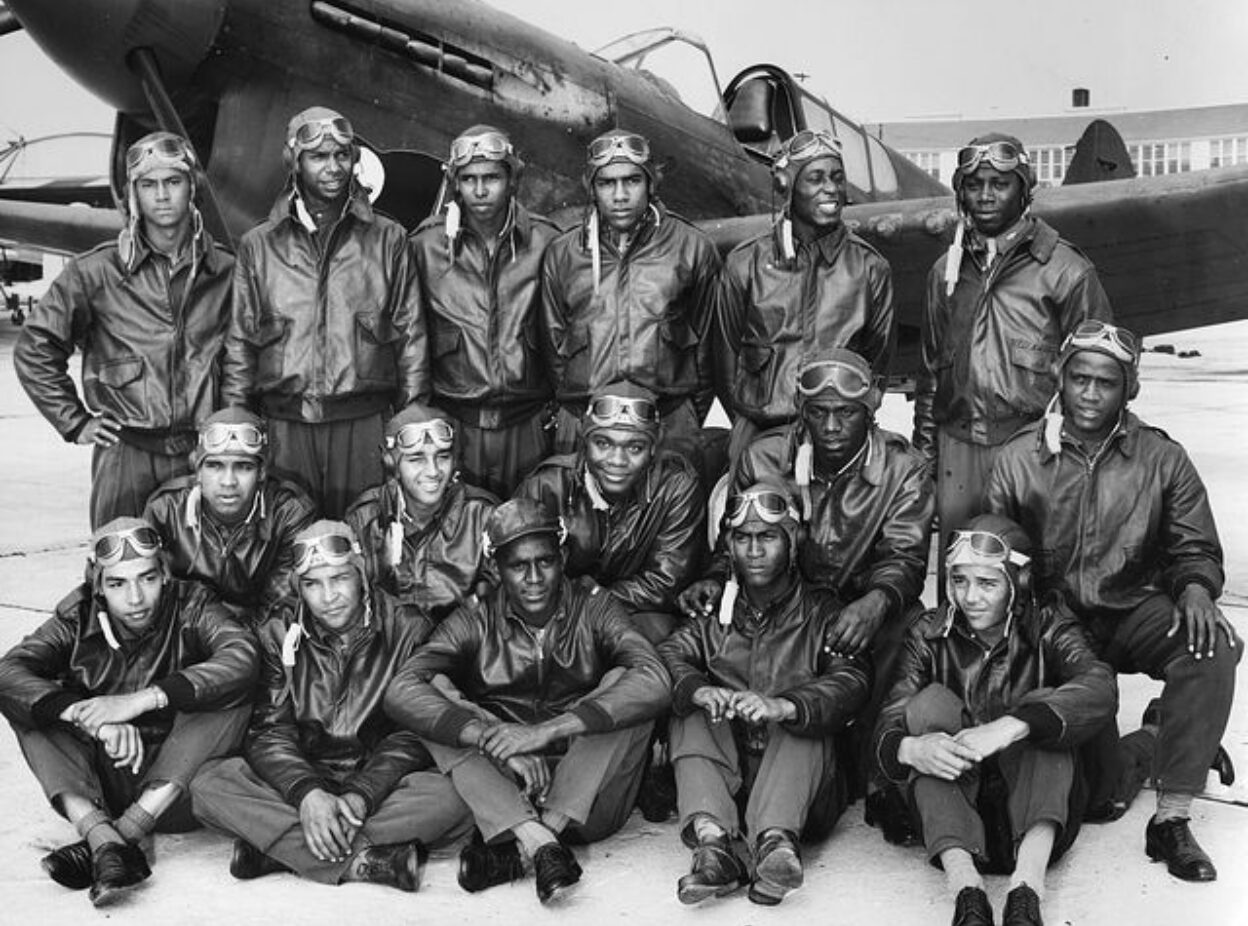What does it really mean to be the first? Not just winning first place in a competition or being first in line at the DMV – both worthy of celebration – but being the pioneer who sets the stage for all who follow.
In 1938, as Europe edged toward another war, President Franklin D. Roosevelt announced an expansion of the U.S. civilian pilot training program. This was a time when racial segregation was still enforced in the armed forces and widespread across the country.
Answering the call from black American lobbyists, Roosevelt included African Americans in the program. Two years later, 13 enlisted men arrived at the Tuskegee Army Air Field in Alabama, forever altering the course of history. As the first all-African American flying unit, these men became known as the Tuskegee Airmen. For them, being the first meant everything. It also changed everything.
The Tuskegee Airmen did more than shatter the color barrier in the U.S. Army Air Corps. By the time their last combat mission concluded on April 16, 1945, just two weeks before Germany’s surrender, they had flown over 15,000 sorties over two years of combat.
Collectively, they earned 150 Distinguished Flying Crosses, 744 Air Medals, 31 Purple Hearts, and 14 Bronze Stars. They paved the way for future generations, risking their lives for a country that still didn’t recognize them as equals.

Their military achievements and bravery alone would have solidified their legacy, but they didn’t stop there. Pioneers often create enduring legacies.
In 1978, over 30 years after the war, a group of original Tuskegee Airmen founded the Tuskegee Airmen Scholarship Foundation (TASF) to provide essential aid to low-income students.
The TASF was established by 2nd Lieutenants Bill Melton, Lowell Steward, Jack Holsclaw, and Buddy Lockett. Their mission continues today through collaboration with 30 chapters participating in the scholarship program.
Here’s how it works: Each chapter refers qualified student applicants for scholarship consideration. These high school students must verify their low-income status, maintain a 3.0 GPA or higher, and submit two essays – one on the impact of the Tuskegee Airmen and another titled “My Life’s Journey.”
Each chapter submits its top five candidates, totaling about 125 applicants. A committee reviews all candidates and selects approximately 40 to receive scholarships. Over the years, the scholarship amounts have increased from a modest $400 in the early days to between $1,500 and $5,000 today.
Since its inception, the TASF has awarded more than 1,500 scholarships, totaling over $3 million, to students in need. That’s an impact that would undoubtedly make the Tuskegee Airmen proud and make us proud as well.

The TASF was created to serve the underserved and reinforce a lasting legacy that has made the world a better place.
In 1941, 13 African American pilot candidates arrived at Tuskegee Air Field, paving the way for many more. Their mission was to serve our country and protect our freedoms, even when this country didn’t treat them equally.
And yet, they championed the underdogs. They turned historic, unprecedented service into a lasting legacy that endures. Today, the Tuskegee Airmen Scholarship Foundation continues its mission.

So, what does it really mean to be the first? For the Tuskegee Airmen, it meant breaking the color barrier and proudly serving our country during wartime. For the TASF, it means creating scholarship opportunities in their honor.

Legacy is a powerful word. We all aspire to make a meaningful impact on the world, inspired by the Tuskegee Airmen. By signing up as a member of Mission Roll Call, you’re helping us advocate for countless other veterans and their families. Who among you will be the first to join us? Become a member today
